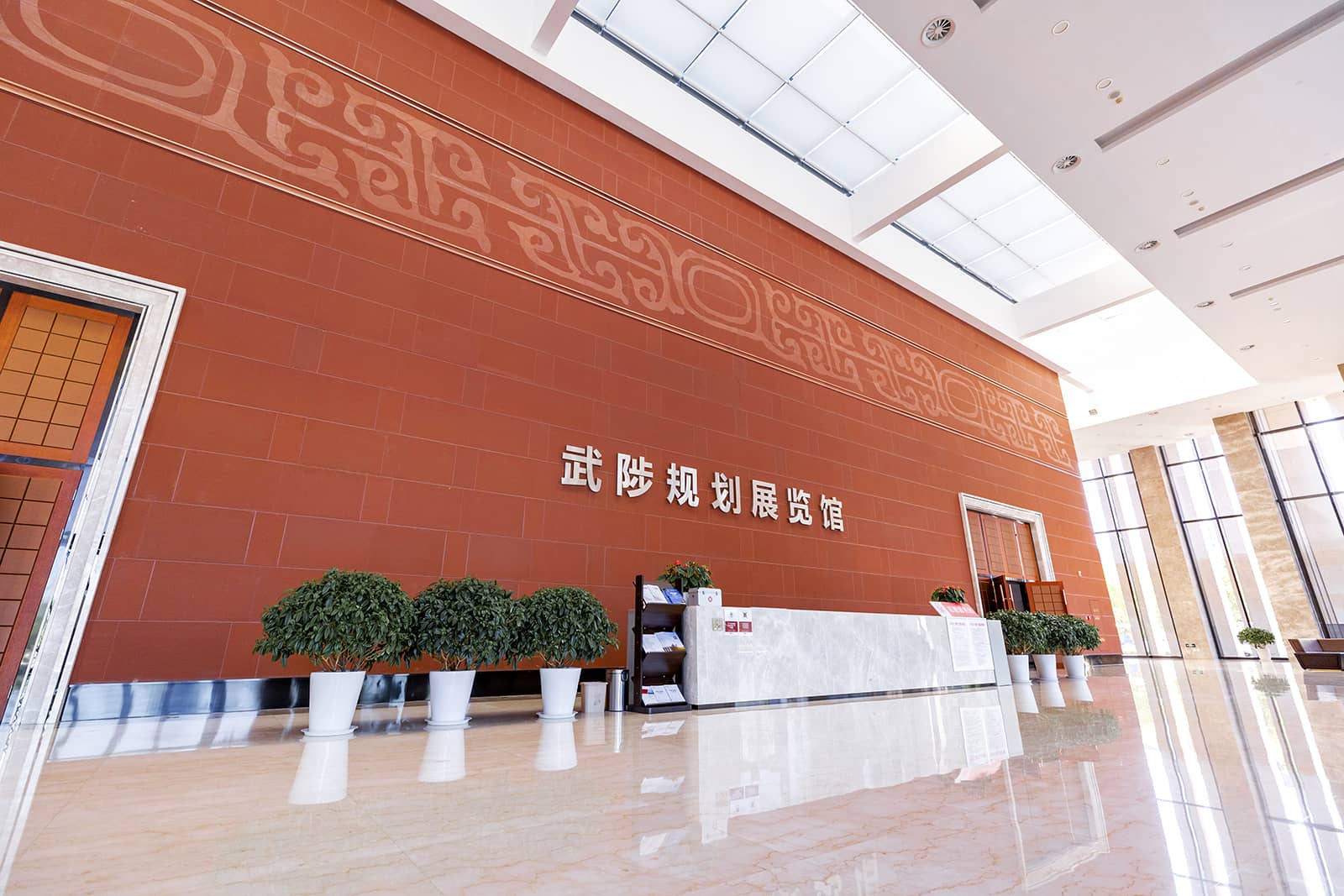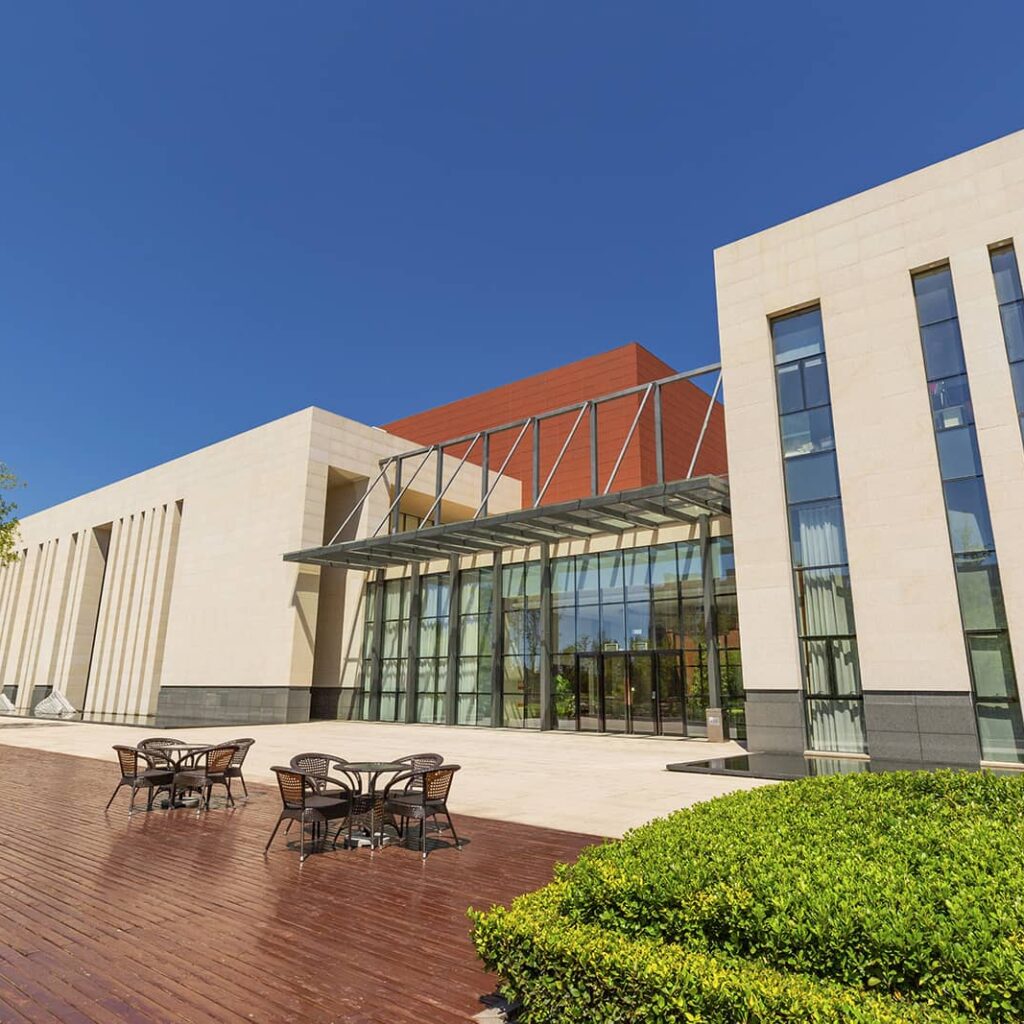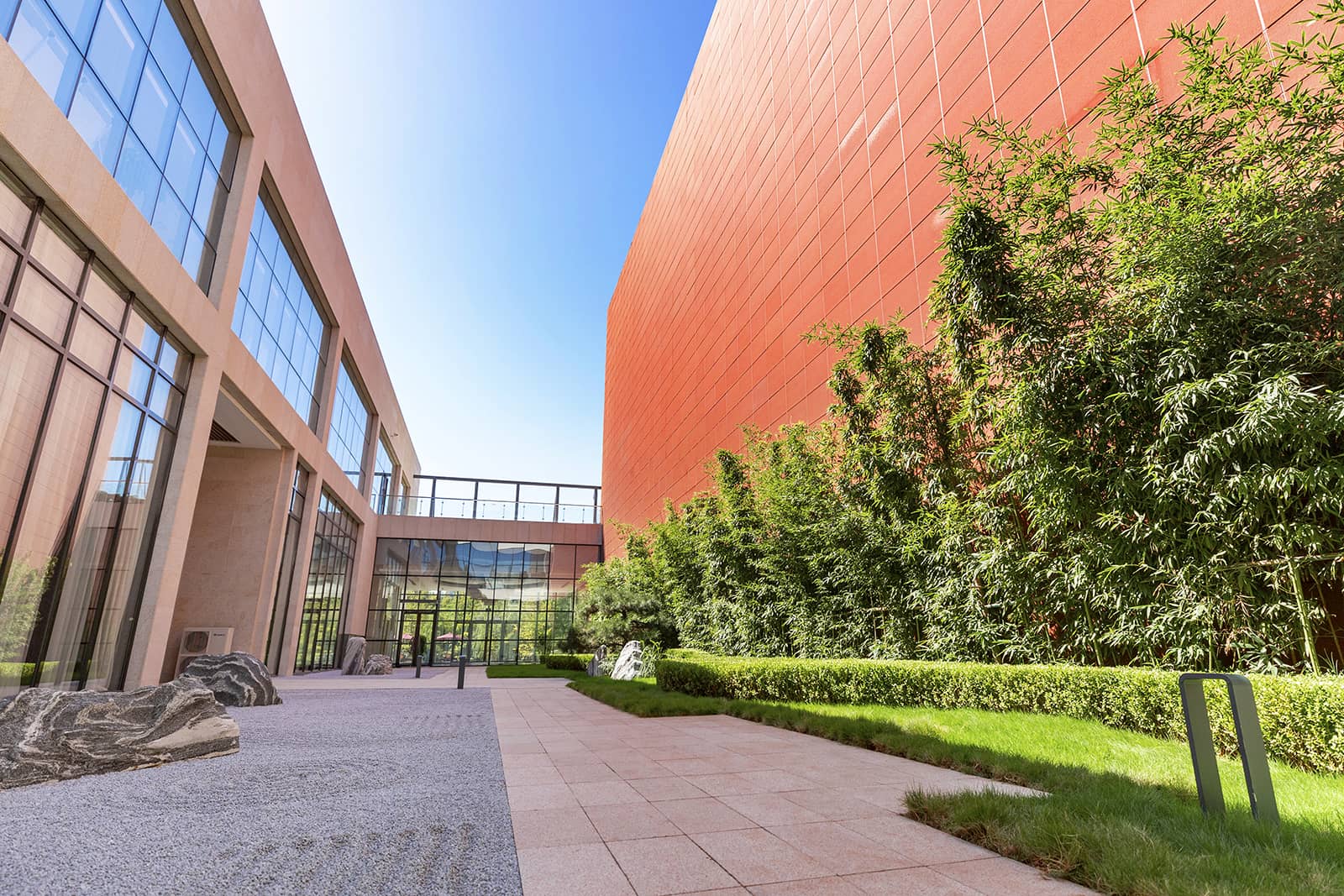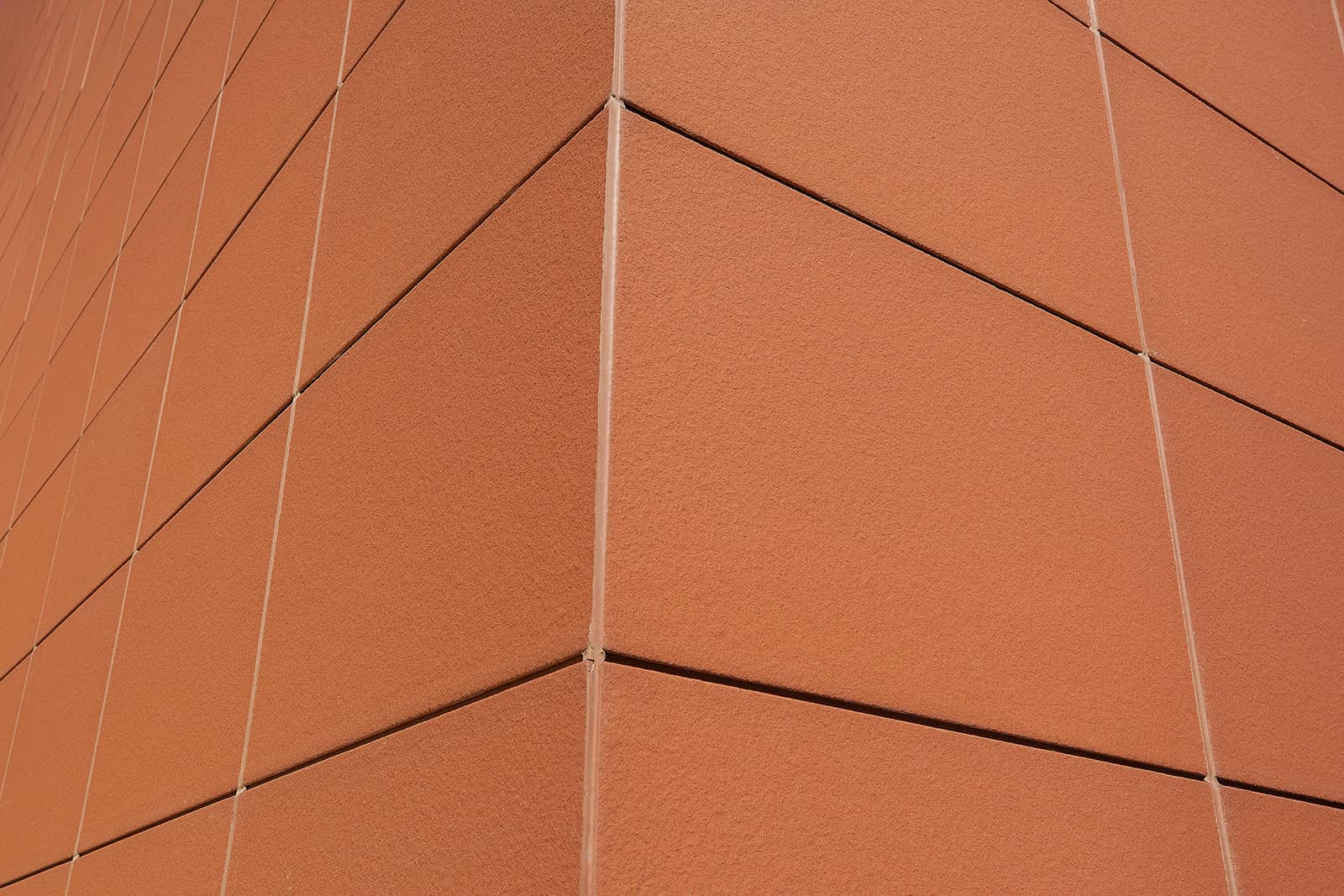The Wuzhi Planning and Exhibition Hall is one of the many urban planning and exhibition projects with LOPO’s presence in China. Although the Terracotta Cladding is not the main component of the building facade material, but its presence brings vitality to the building by organically integrating different building materials and preserving architectural elements and city’s culture.
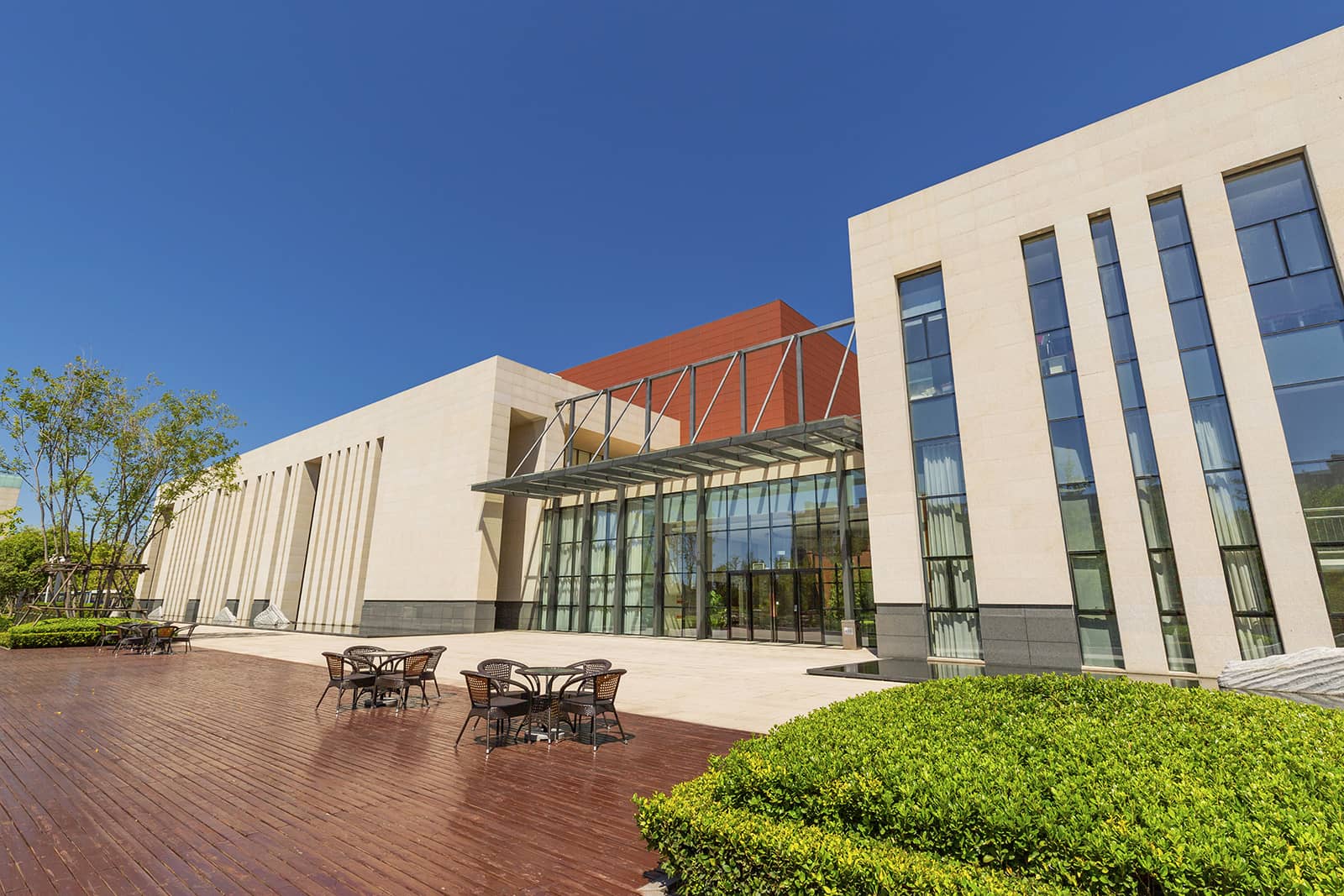
Located on the shore of Longze Lake in Wuzhi County, Jiaozuo City, Henan Province, the project is a public building project, which is jointly constructed and operated by the county government and China Fortune Land Development Co., Ltd. It covers a total area of 20,926 square meters with an overall floorage of 8,689.76 square meters. The building is an important exhibition platform for the history, region, folk customs, and cultural genes of Wuzhi.
The history of Wuzhi’s development also reflects the evolution of the Yellow River. Wuzhi County, located in the hinterland of the Central Plains, is bounded by the Taihang Mountain to the north and the Yellow River to the south. It boasts a documented history of over 1,400 years. The Yellow River culture has deeply impacted the lives of the local people, and many historical relics, stories, legends and folk customs were shaped as well. When it comes to the planning and designing of this exhibition hall, the architects hope to showcase the city’s development in an all-round manner, trying to connect the history with the future.
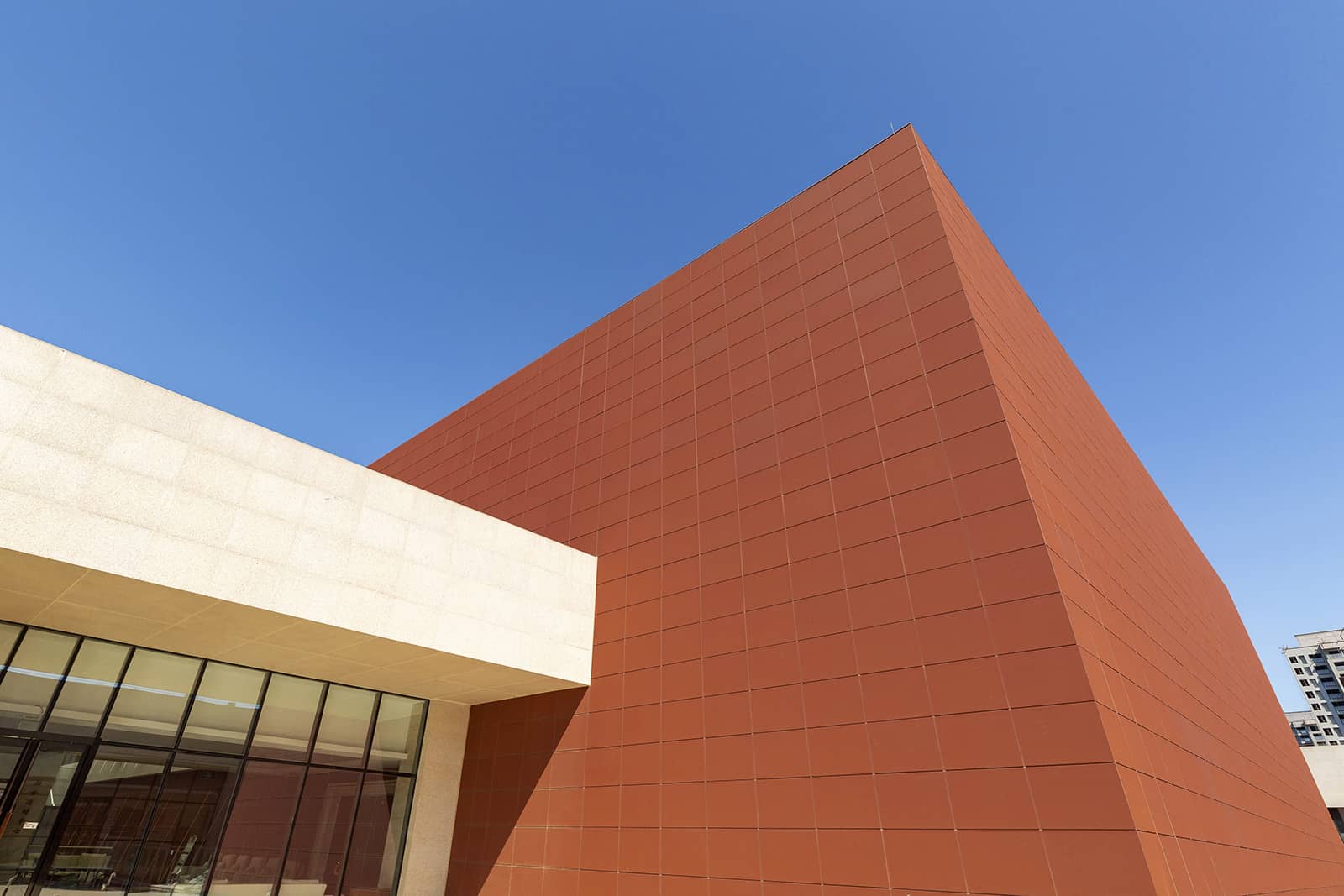
The Wuzhi Planning and Exhibition Hall features a regular square structure with irregular columns on all four sides of the building. The building facade lines are simple yet modern. A water belt is designed to surround the four sides of the building. Stretching from the outer edge of the building to the portico, it echoes the historical characteristics of Wuzhi as the hometown of the Yellow River and provides a flowing dynamism to the building.
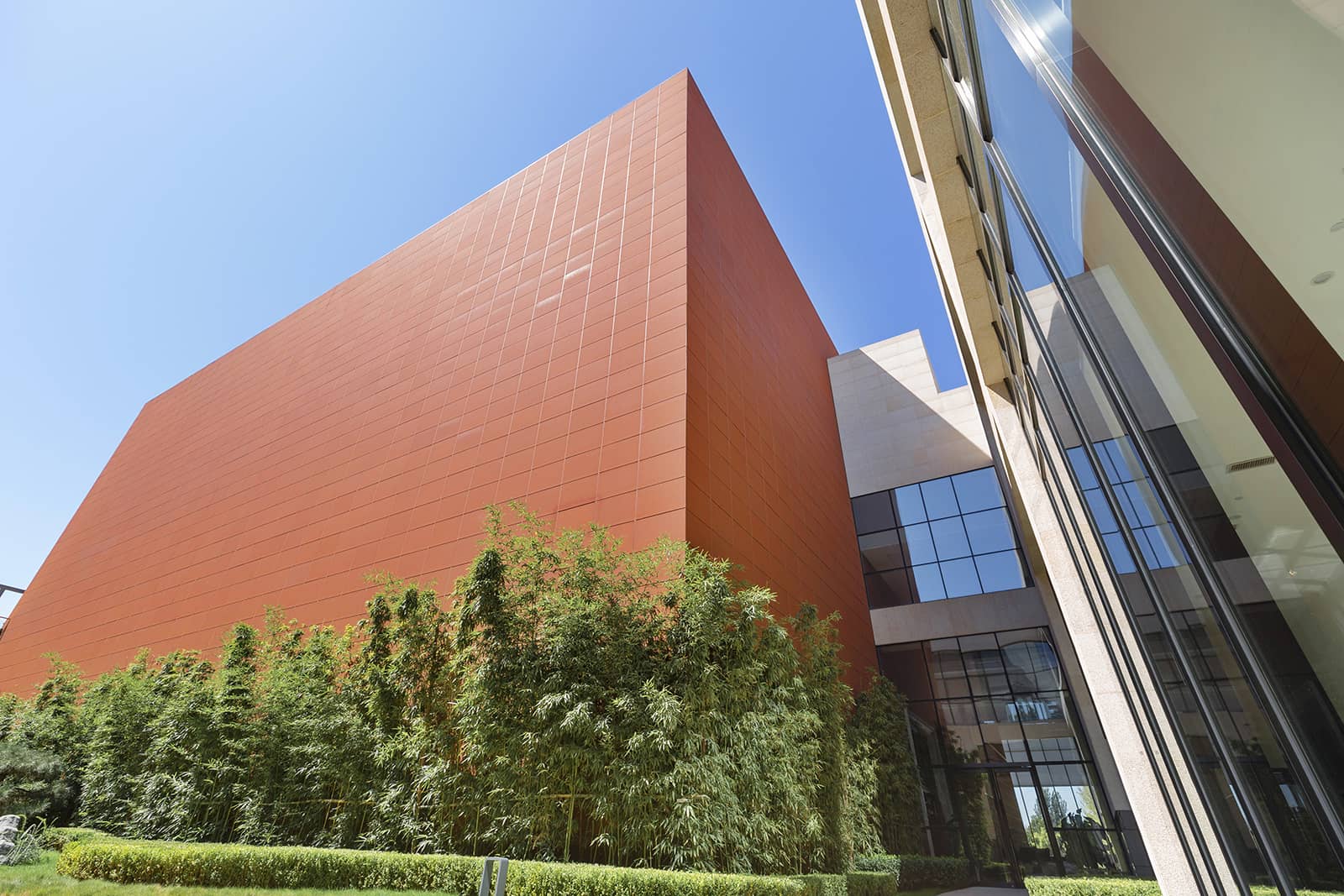
The architectural space of the exhibition hall follows its function architecturally, which features a zigzagging flow. Unlike most urban planning and exhibition halls in China, which are designed as a “black box” without natural lighting, the outskirt and atrium of this exhibition halls are designed to allow natural light to flow into the exhibition space, forming a dialogue with the nature. The architects used light yellow natural stone cladding for the overall facade of the exhibition hall, but Chinese red terracotta panels are used for the atrium façade and the lobby walls. The two distinctly different natural materials yield a contrasting view in terms of color and texture, but blend with each other as well. Thus, it brings a touch of vibrant color to this elegant and calm modern building. As you enter the atrium, you will be impressed by a red terracotta wall, lush bamboos, and Japanese rock garden design, creating a courtyard with a strong sense of Zen in the Chinese context, which is a refreshing experience for the visitors.
LOPO produced terracotta wall panels with sandblast surface for this project and customized a small part of micro-carved terracotta. As for the wall of the lobby, the architects mixed two kinds of red panels with different shades, and used the carved panels with the totem pattern of the Yellow River Tribe on the upper part of the façade, presenting a unique “large format terracotta version” of the traditional Chinese terracotta brick building facade effect, which gives the building a stronger local connotation.
